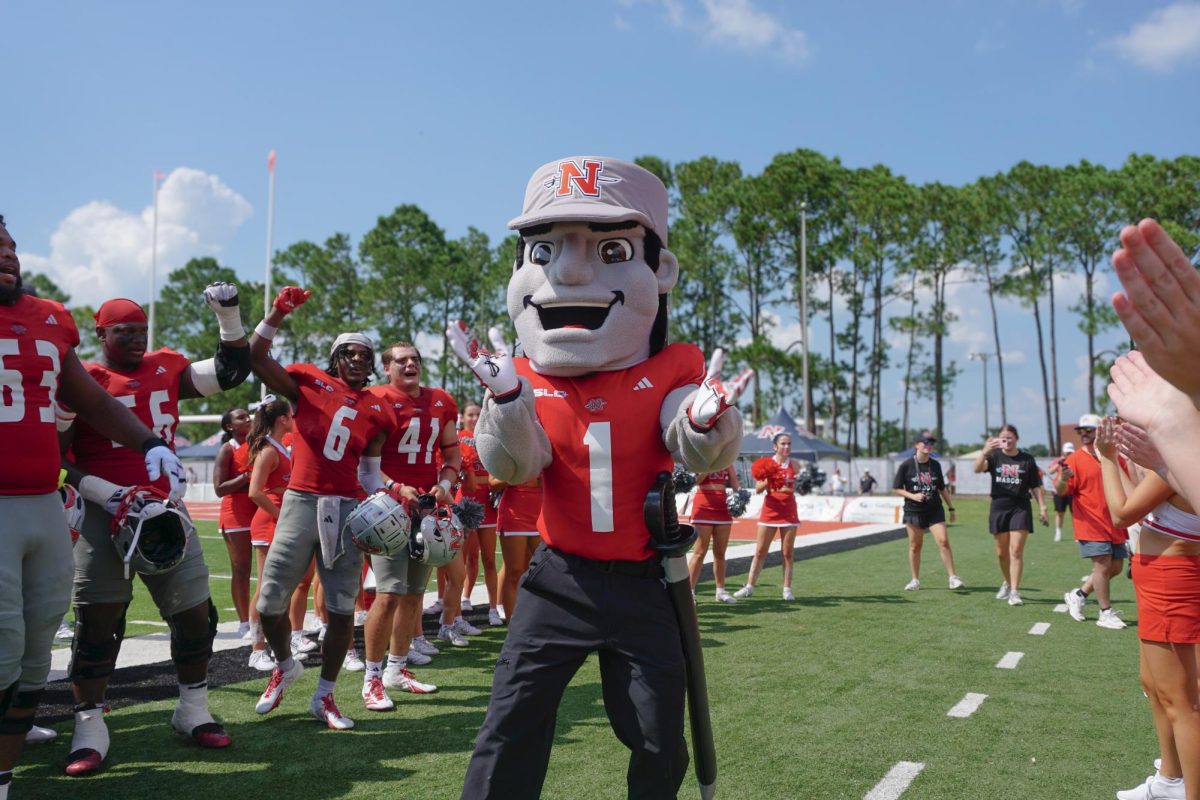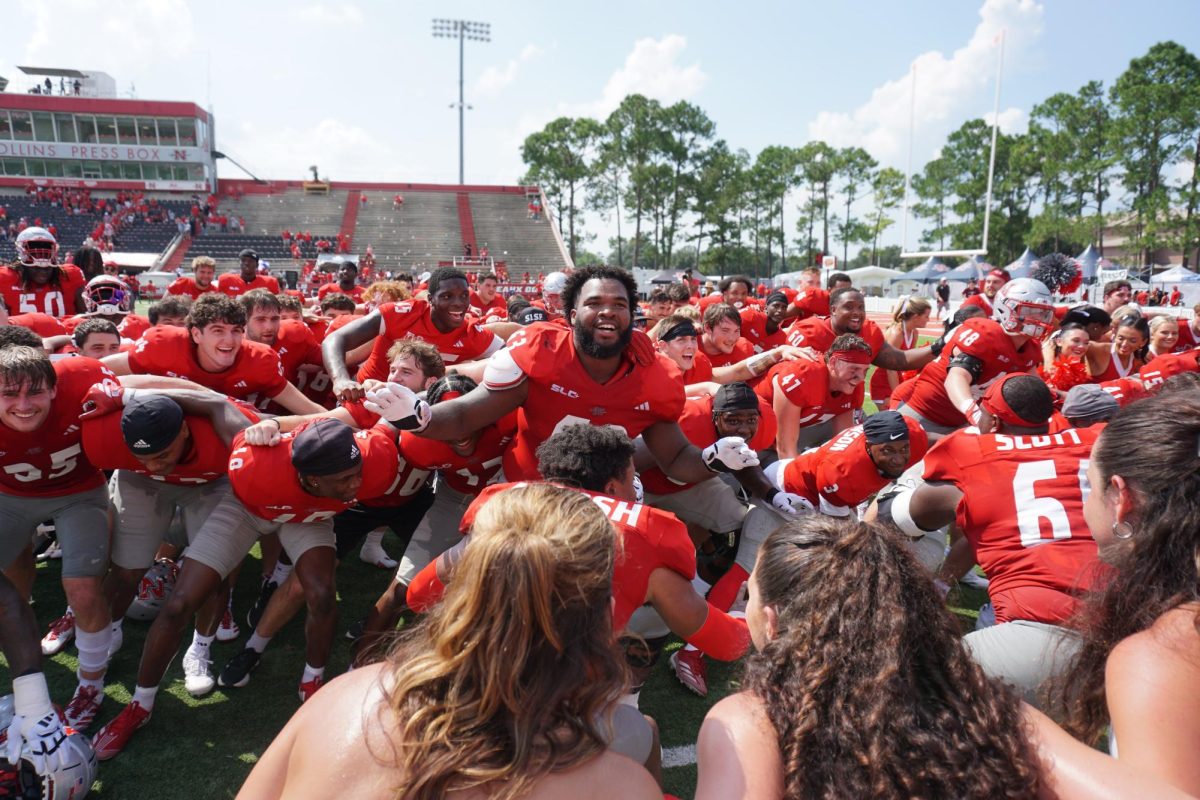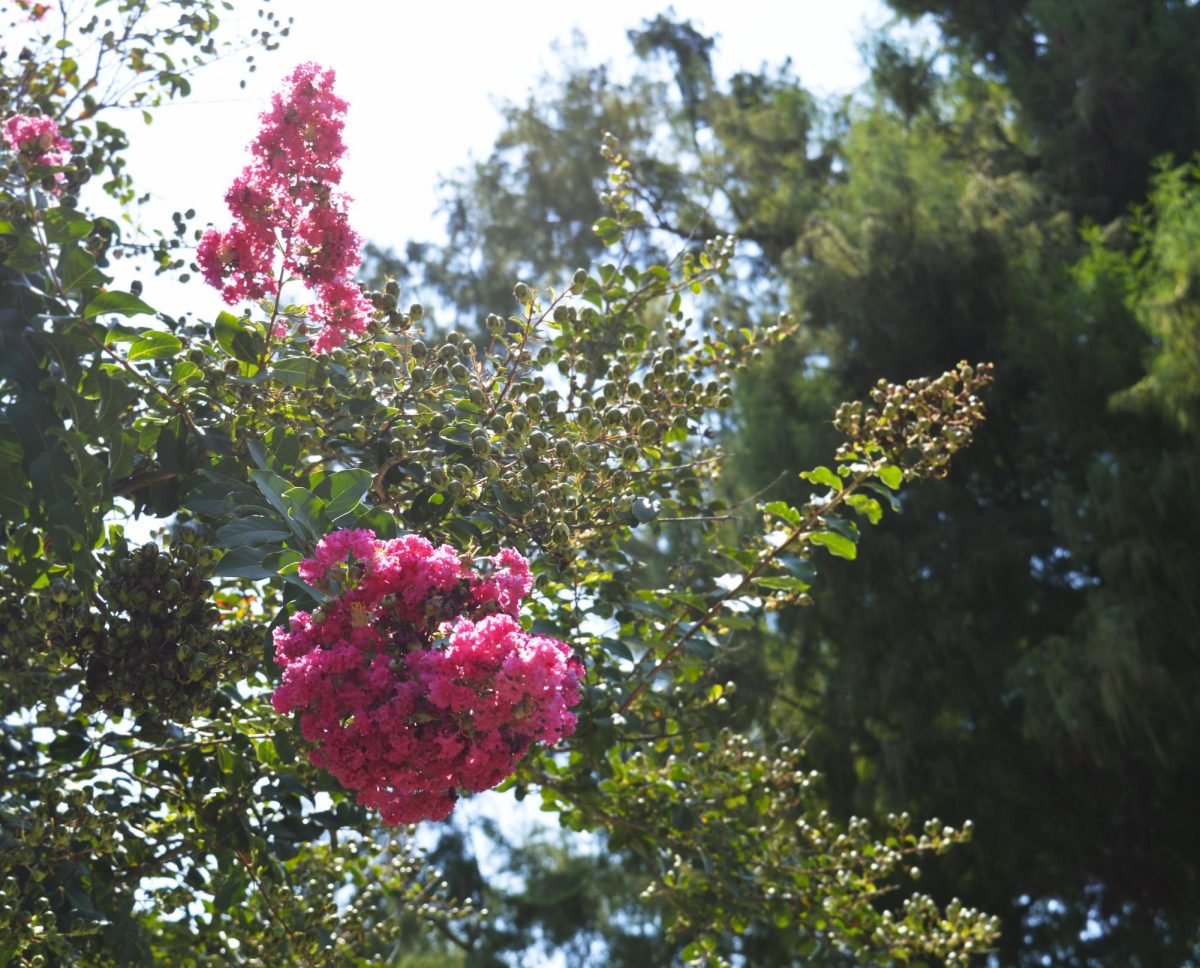Jaret Hubbell, Student Government Association president, wrote a letter March 2 recommending that the University administration retain Nicholls’ Colonel mascot, to educate everyone within the Nicholls community of its history and to update old standards and adopt policies that maximize minority input.Hubbell’s recommendation letter, sent to campus media as well as University president Stephen Hulbert and Paul Hypolite Jr., president for the National Association for the Advancement of Colored People, outlines his opinions on the mascot controversy, a controversy which has existed for over a decade.
The first of Hubbell’s three points in the recommendation letter regarding the mascot issue states: “In accordance with the opinion of the majority of Nicholls State University, I recommend that the NSU mascot stay the Colonel.” Hubbell proceeded with a recommendation that the University community back its previous history as a military school and not as a depiction of the perceived connection to the Confederacy.
Hubbell also said while he takes great pride in the South’s hospitality and warmth, he realizes that those who have come before him have made terrible mistakes, and he will not take up a symbol of those mistakes because of “a misbegotten notion of great heritage.” Hubbell said, “The mascot should represent the past, present and future nobility and strength that the students of Nicholls State University have and will always seek, and that connection can be found in our immediate history at this University. That is where the connection must remain if we are to have a realistic understanding of our history as an institution.”
Hubbell’s second point encourages “efforts (to) be made in (the University’s) academic, student, and alumni services to educate everyone involved with Nicholls about (its) community’s history.” Hubbell said the lack of understanding of the history of the mascot and the history of the University in general became evident through SGA research. Hubbell also said that students, faculty, staff, administration, alumni and community supporters must be made aware of the University’s true history and purposes. These include freshman studies classes, seminars, special events including both the Student Programming Association and alumni crawfish boils and sporting events.
Hubbell finally urged the administration “to update old standards and adopt policies that can maximize the input of the minority for the benefit of all.” Hubbell said while the Nicholls community can remember the past, it must not be burdened by it, and the community must be willing to adopt new ideas that will be beneficial. Hubbell said, “While some individuals scoffed at the idea of updating the mascot, I believe that this idea holds a great deal of merit, and I believe that time will prove it.”
In concluding his letter of recommendation, Hubbell remarked on a side note, ” … would this debate have occurred if we would still hold an active (Reserve Officers’ Training Corps) program on campus? The program would have been updated by new standards, and I have no doubt that our mascot would have as well.”
In response to Hubbell’s letter, Hypolite said, “I feel like this is a tremendous step in the right direction from both the SGA and Jaret Hubbell. This is probably one of the biggest steps that we can possibly take as a student.”
Hubbell said he reached the decision to make the recommendation based on the information he had. This includes a survey conducted with both the SGA and the NAACP, a survey by the SGA alone, and personal interviews he had with about 50 students, of whom about 60 percent were opposed to changing the mascot.
“This (writing of the letter) was my decision as SGA president,” Hubbell said. “I spoke with (the SGA’s) executive board, my committee head for the mascot review committee and a couple of other individuals just to get my thoughts together.”
According to Hypolite, there was a great misunderstanding in which students began to think the NAACP was proposing a complete change in mascot when the organization only proposed an update to the current Colonel mascot.
“I feel that it was a lack of understanding, and I think it really had something to do with the way the SGA worded the surveys that we took earlier in the semester,” Hypolite said. “I didn’t like that at all.”
Hypolite said he has contacted Hubbell asking for guidance in the next steps of the process of change and he is now contacting people within the Nicholls NAACP to come up with images for how the Colonel mascot should look.
Hubbell said he received a letter from Hulbert which thanked him for his correspondence and the SGA for their thoughtful consideration in the matter concerning the mascot. He stated that he and his colleagues would proceed to talk and bring closure to the matter as soon as reasonably possible.
Hulbert sent an e-mail addressed to the “Nicholls Community” briefing the history of the Nicholls mascot beginning in 1948 and through 1998. The conclusion of the e-mail states, “The history of the mascot never refers to it as a Confederate colonel.”
Hubbell encourages students with concerns such as the mascot issue and beyond to participate in SGA voting.
“Want to complain?” Hubbell said. “You need to vote. If you don’t vote, I don’t want to hear you complain.”
Hypolite said he wants the students to know that the Nicholls NAACP is not exclusive to blacks and is open to all races.
“The only qualification (for being a Nicholls NAACP member) is that you identify yourself as wanting to promote equal rights on this campus,” Hypolite said. “Whether you’re black, white, Latino, Asian or whatever, the NAACP is open to anybody who has (the goal of) equal rights in his heart.”
“I appreciate the majority of people’s civility in dealing with the mascot issue,” Hubbell said. “Those people who have taken extreme positions and refer to ‘the other side’ in derogatory manners have no place in our community, and I wish they would all pack up and find somewhere else to go. That’s on both sides. At no point did this need to get personal, but a small percentage of the people got personal.








